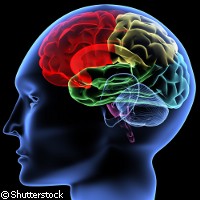Revolutionising diagnostics with some help from nature
Scientists from the EU-funded RECEPTRONICS project are turning to nature, and combining what they learn with the latest in nanotechnology, to find new ways of diagnosing cancer. The project, funded by the EU with EUR 1.99 million under the Sixth Framework Programme (FP6), brings together experts from four European countries in the fields of biochemistry, bioengineering, nanotechnology and information technology. As the old saying goes, there is no need to re-invent the wheel. Taking this to heart, scientists are borrowing a page from nature and are finding new ways of applying the way nature performs diagnoses to modern medicinal applications. RECEPTRONICS project coordinator Professor Marco Tartagni of the University of Bologna in Italy explains, 'The idea is to use bioengineering to harness the natural biological process for molecule recognition, and to put it together with state-of-the-art electronics.' While the three-year project officially ended in September 2008, the partners are so enthused by the results they have already achieved that they have agreed to self-fund at least another year of working together. According to the scientists, evolution has already provided the human body with a whole suite of tools that it can use to diagnose sickness. When the body contracts a cold or the flu, this is accompanied by a sore throat and a runny nose, for example. This is the body's way of telling us that we have the flu. A blocked nose is also an indication that the body is fighting back and already winning the battle. How this works, however, is extremely complicated, involving complex organisms, tools and systems which scientists are still struggling to understand, and hopefully one day, emulate. RECEPTRONICS aims to develop a revolutionary new hybrid technology that will offer the possibility of detecting diseases right at inception. Hopefully within a few years they will have developed the technology which will enable every doctor's surgery to have a small, inexpensive device that can test blood on the spot and warn of impending illness before any symptoms become apparent. At the heart of the process is molecule recognition, a process that a healthy human body performs continually. For medical purposes, the type of molecule that needs to be recognised is called a biomarker, and its presence can indicate that a disease is starting well before there are any other symptoms. In order to recognise biomolecules, nature has developed receptors, which are mirror images of the molecules being sensed. Every single type of biomolecule has its own receptor in nature. Professor Tartagni explains how their technology works: 'The front end of the system is composed of bioengineered receptors that are very similar to those generated by nature and specifically designed to target molecules, put together with man-made microelectronic systems at the back end. The results are very promising and we could soon unveil the best and most precise method ever developed of sensing single molecules.' Tartagni points out it could be months or even years after the first biomarkers have appeared before full-blown cancer develops. 'What is needed is a very smart sensor which can precisely detect concentrations of a wide range of molecules, and the only way to get the required precision is to count molecules one by one. Nature has developed a way to do this, and we are trying to do exactly what nature does,' he says. 'We have pioneered techniques which are working very well, and we now need to tie them together. We are working on a compact and affordable point-of-care biomarker detection device which can be made commercially available,' he says. It is no exaggeration to say the techniques developed by the RECEPTRONICS researchers could truly revolutionise both diagnostics and the development of new medicines.
Countries
Italy



